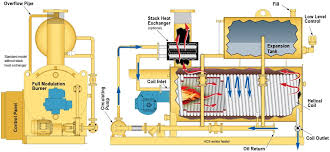
ডিসে. . 03, 2024 19:02 Back to list
how to add water to steam boiler
How to Add Water to a Steam Boiler
A steam boiler is a crucial component in many industrial and residential heating systems. It generates steam for various applications, including heating, power generation, and even cooking. Over time, the water level in a steam boiler can drop due to various factors, such as steam production, leaks, or maintenance issues. Adding water to a steam boiler might seem straightforward, but it requires careful attention to safety and operational protocols. In this article, we will explore the process of adding water to a steam boiler effectively and safely.
Understanding Boiler Water Levels
Before you add water to a steam boiler, it is essential to understand the significance of maintaining the correct water level. Ideally, the water level should stay between the minimum and maximum indicators on the gauge. If the water level falls below the safe operating level, it can lead to overheating and damage to the boiler. Conversely, overfilling can create pressure issues and lead to dangerous situations, such as water carryover, where liquid water is carried into the steam lines.
Safety Precautions
Safety is paramount when working with steam boilers. Before you begin the process of adding water, follow these safety precautions
1. Turn Off the Boiler Always turn off the boiler and allow it to cool down. Working with a hot boiler can be extremely dangerous due to the risk of burns from hot surfaces and steam.
2. Wear Protective Gear Equip yourself with appropriate personal protective equipment (PPE), including heat-resistant gloves and safety goggles.
3. Check for Leaks Inspect the boiler for any visible leaks or damage. Address any issues before adding water as they may worsen once the boiler is refilled.
how to add water to steam boiler

Adding Water to the Boiler
Once you have ensured that your boiler is safe to work with, follow these steps to add water
1. Locate the Feedwater Connection Identify the feedwater connection point on the boiler. This is usually a valve located on the side or front of the unit.
2. Open the Valve Open the feedwater valve slowly. This will allow water to flow into the boiler. If your boiler does not have automatic water feeders, you will need to do this manually. Ensure that you are using clean, treated water to avoid scaling and other issues.
3. Monitor the Water Level Keep an eye on the water level gauge as you add water. It's crucial to stop filling when the water level reaches the predetermined safe range. Overfilling the boiler can result in serious operational issues.
4. Close the Valve Once the desired water level is achieved, close the feedwater valve carefully. This prevents any excess water from entering the boiler.
5. Check for Proper Operation After adding water, turn the boiler back on and monitor its operation. Check for any unusual sounds, leaks, or pressure issues. It may also be useful to conduct a blowdown procedure to remove any impurities or buildup from the water you just added.
Conclusion
Adding water to a steam boiler is a vital maintenance task that ensures the safe and efficient operation of the system. By following the recommended safety precautions and procedures, you can maintain the necessary water levels in your boiler, preventing damage and ensuring its longevity. Regular checks and mindful operation will not only enhance the performance of the steam boiler but also contribute to a safer working environment. Remember, when in doubt, consult the manufacturer’s manual or seek the expertise of a qualified technician.
-
High-Efficiency Gas Thermal Oil Boilers | HPT Models
NewsJul.31,2025
-
Oil Fired Hot Water Boilers Sale - High Efficiency & Affordable
NewsJul.31,2025
-
High-Efficiency Commercial Oil Fired Steam Boiler for Industry
NewsJul.30,2025
-
High-Efficiency Biomass Fired Thermal Oil Boiler Solutions
NewsJul.30,2025
-
High Efficiency Gas Fired Thermal Oil Boiler for Industrial Heating
NewsJul.29,2025
-
High-Efficiency Gas Fired Hot Water Boiler for Sale – Reliable & Affordable
NewsJul.29,2025
Related PRODUCTS






















